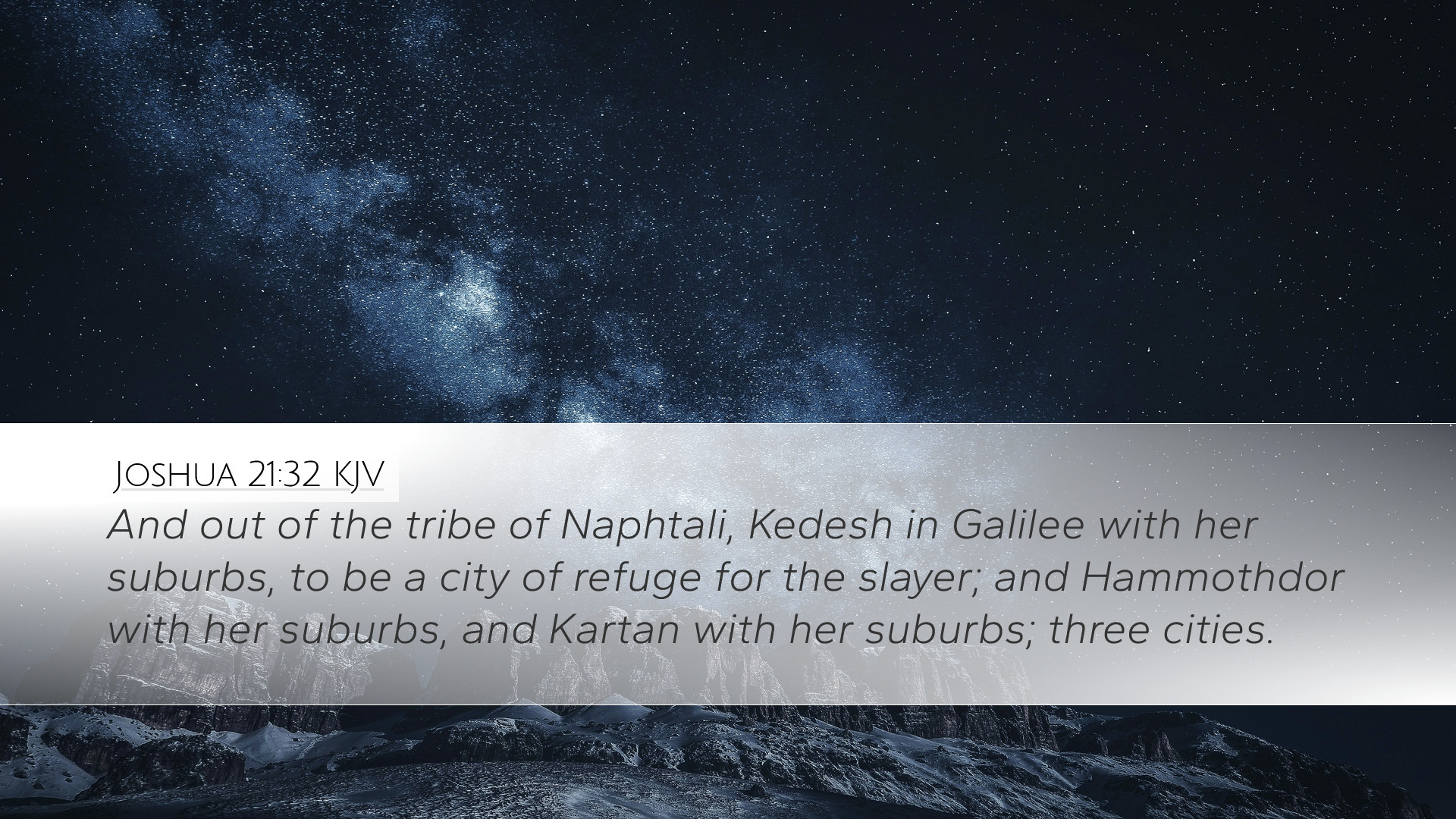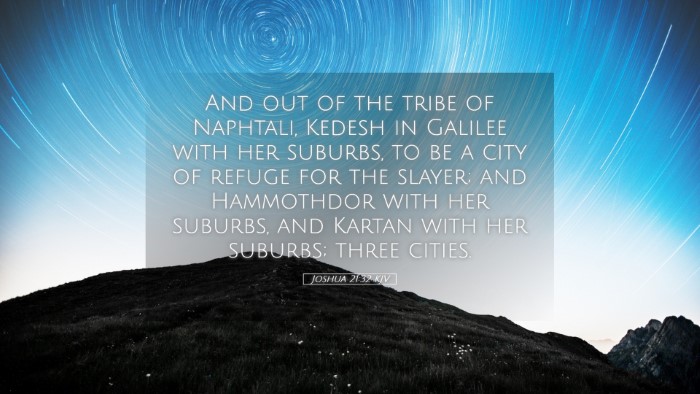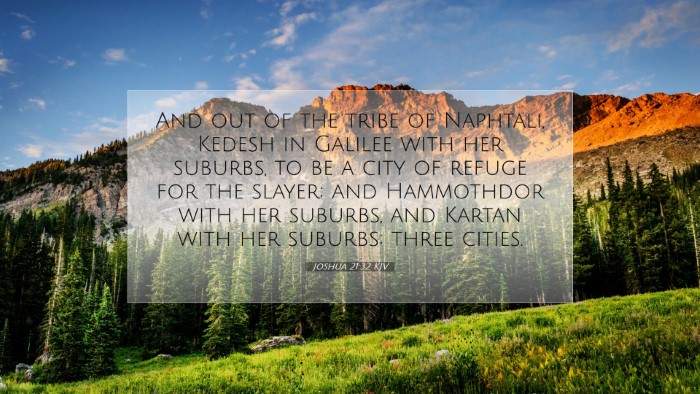Bible Commentary on Joshua 21:32
Verse Summary: Joshua 21:32 states, "And out of the tribe of Naphtali, Kedesh in Galilee with her suburbs, to be a city of refuge for the slayer; and Hammoth-dor with her suburbs, and Kartan with her suburbs; three cities." This verse is part of the distribution of Levitical cities among the tribes of Israel.
Contextual Background
The allocation of the Levitical cities is a crucial part of Joshua's leadership after the conquest of Canaan. The Levites, as the priestly tribe, did not receive a territorial inheritance like the other tribes but were given cities scattered throughout the other tribes, providing them with the means to minister and serve God’s people.
Significance of Refuge Cities
The cities of refuge, such as Kedesh mentioned in this verse, were established as a critical part of the justice system in Israel. They provided protection for those who had unintentionally committed manslaughter, allowing them a safe haven from the avenger of blood until a trial could be held.
Commentary Insights
-
Matthew Henry’s Commentary:
Henry elaborates on the significance of the cities of refuge, emphasizing God’s mercy and justice. He indicates that these cities offered a physical sanctuary as well as a symbolic reminder of God’s provision for mercy amidst the Law. He also highlights that Kedesh, meaning "holy," reflects the nature of God and His desire for His people to have access to a place of safety, emphasizing the characteristic of God's grace woven throughout the Mosaic Law.
-
Albert Barnes’ Notes:
Barnes focuses on the practical aspects of the cities assigned to the Levites. He points out that these cities served not only as places of refuge but also as centers of learning and teaching for the people. The mention of Naphtali's cities illustrates the tribe's faithfulness and the strategic importance of these cities geographically, possessing access to different tribal territories.
-
Adam Clarke’s Commentary:
Clarke provides a more detailed geographical analysis, emphasizing the location of each city mentioned, including Kedesh in Galilee. He comments on the importance of Galilee in the historical context of Israel, prefiguring its later significance in the ministry of Christ. In his analysis, Clarke draws connections between the refuge cities and the concept of Christ as the ultimate refuge for believers, showcasing how the Old Testament law foreshadows New Testament realities.
Theological Considerations
This verse opens up several theological reflections for pastors, students, and scholars, particularly the themes of justice, mercy, and God's provision:
-
Justice in God’s System:
God’s provision for cities of refuge demonstrates a balance of justice and mercy. It reflects a God who desires righteousness in society while also offering a means of redemption for unintentional wrongdoers.
-
God’s Mercy and Protection:
The cities of refuge illustrate the protective nature of God towards His people. This multifaceted provision invites deeper study into how God prepares spaces for redemption and safety, paralleling the congregation's call to offer refuge and solace to those in need.
-
Foreshadowing Christ:
The practice of seeking refuge in Kedesh and other cities prefigures the ultimate refuge found in Christ. Just as the accidental killer could flee to a city of refuge to escape judgment, sinners can find safety in the grace offered by Jesus, their true sanctuary from divine wrath.
Conclusion
In the larger narrative of Israel’s history and legislation, Joshua 21:32 occupies a critical space. It invites a contemplation of God’s justice and mercy as foundational principles of His kingdom, offering rich insights for theological reflection and practical ministry. The cities of refuge remind us today that even in a fallen world, God provides places of safety and restoration, urging the Church to embody these characteristics in its ministry to the world.


